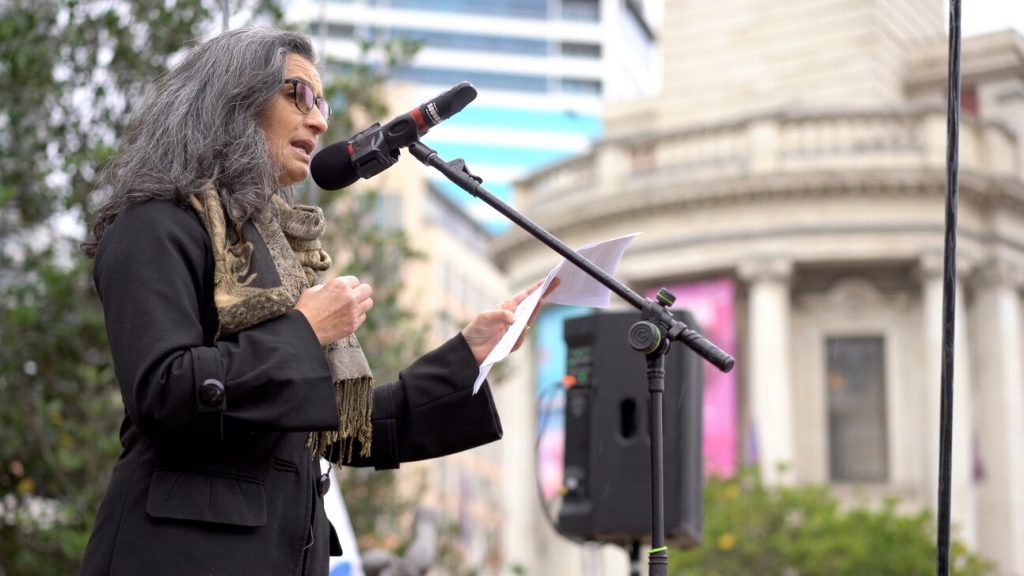Australia/Israel Review
AIR New Zealand: Maori for Jewish Indigenousness
Dec 17, 2021 | Miriam Bell

It is an age-old incantation of the Jewish people: “Next year in Jerusalem.” The final words of the Passover seder have resounded over centuries, representing the Jewish people’s deep and ongoing connection with their ancestral homeland.
This connection to, and over 3,000 years of continuous presence in, the land of Israel, is a characteristic found in indigenous people around the world.
In New Zealand, Maori are tangata whenua, the people of the land, and the land is critical to their identity. That is the case for the Jewish people, too.
One of the most pernicious, false anti-Zionist claims of modern times is that the Jewish people of Israel are colonisers from Europe, foreign to the land which they have “stolen” from the indigenous Palestinians.
This untrue narrative has increasingly taken root and many fervent pro-Palestinian supporters believe it. In New Zealand, that includes many Maori.
A prime example was a segment on the New Zealand TV program “The Project” in May, during which presenter Kenoa Lloyd said the Gaza conflict and, by extension, Israel’s claim to the land, sounded “a tiny bit like colonialisation” which was a “tiny bit familiar to me as a Maori person in New Zealand.”
Holocaust and Antisemitism Foundation Aotearoa New Zealand co-founder Dr. Sheree Trotter, who is also Maori, published an open letter to Lloyd explaining why it was not colonialisation at all. She did not receive a response.
This incident was reminiscent of Green Party co-leader Marama Davidson’s trip to Gaza five years ago, in which Davidson said she went “as an indigenous woman” to support “indigenous Palestinian women”. On that occasion, Trotter responded with an article “Not all Maori on Board with Marama.”
It soon became obvious to Trotter that there was no official Maori or Indigenous entity to speak up on such occasions and to galvanise indigenous support for Israel, she said.
She added, “There is a real need for it as the pro-Palestinian position has become well embedded in Maori communities. The pro-Palestinian push has come from both ends of the spectrum, through academia and the trade union movement… despite the fact that historically there has been a unique relationship between Maori and Jews.”
Trotter and former National MP Alfred Ngaro, who previously headed the New Zealand-Israel Parliamentary Friendship Group, have therefore established the Indigenous Coalition for Israel.
The coalition’s goal is to change the perception of Israel among Maori and Pasifika (Pacific Islander) communities and create greater understanding.
They are already off to a flying start. Their website features articles and videos with views and information not often presented in New Zealand media. They also published letters to the guardians of the NZ SuperFund over its decision to divest from Israeli banks and to Foreign Affairs Minister Nanaia Mahuta, urging her to commit to a boycott of the event marking the 20th anniversary of the UN’s notorious anti-racism conference in Durban in September (New Zealand ultimately did boycott the conference).
Recently, an article by Trotter on the indigeneity of the Jews and the comparison with Maori, titled “A Light for the Indigenous Nations”, ran in Tablet, a prominent US-based online magazine. It has generated good feedback and strong interest from overseas.
But Trotter said that, as much as possible, the group will also use traditional face-to-face engagement:
“Maori and Pasifika cultures work by building relationships – whakawhanaungatanga. Through this we seek to facilitate the building of relationships of mutual trust and understanding.”
An example of this was a recent event in which the Israeli Ambassador to New Zealand Ran Yaakoby was welcomed to the most prestigious marae (communal sacred meeting ground) in Rotorua by the Te Arawa Iwi (confederation of Maori tribes). Yaakoby was the first ambassador to be welcomed by the Te Arawa.
“Iwi business leaders and kaumatua [elders] were excited by the possibilities presented by the ambassador for an ongoing relationship with Israel based upon business interests. This hui [gathering] was a first step. We, as an organisation are following up with iwi, to discuss the way forward. It’s a very exciting development.”
To build relationships, the coalition hopes to connect with local Jewish, iwi and Pacific groups and organisations, as well as international indigenous groups. At this point, they are working with a couple of iwi groups and have partnerships with the European Coalition for Israel and the International Coalition for Israel.
It is early days yet, and when it comes to advocacy, it is a difficult area to gain media interest in, unless there is a war happening, Trotter said.
But the coalition is there for the long-haul because, despite what anti-Zionist ideologues might assume, the Jews of Israel are an inspiration for many Maori, she added.
“We want to highlight the indigenous argument, that Jews as indigenous people have indigenous rights in their land. We also want to cultivate the connections between Jews and Maori/Pasifika peoples by highlighting the stories and building bridges between communities,” she added.
Tags: Anti-Zionism, Israel, New Zealand






